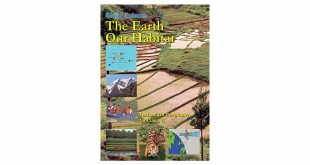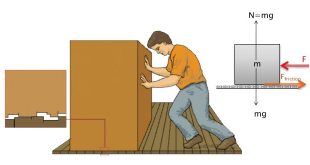India: Climate Vegetation and Wildlife – 6th Class NCERT CBSE Social Science (Geography) Chapter 08 Question: Answer the following questions briefly. Which winds bring rainfall in India? Why is it so important? Name the different seasons in India. What is natural vegetation? Name the different types of vegetation found in What is …
Read More »Major Landforms of the Earth: 6 Class CBSE SST Chapter 6
Major Landforms of the Earth – 6th Class NCERT CBSE Social Science (Geography) Chapter 06 Question: Answer the following questions briefly. What are the major landforms? What is the difference between a mountain and a plateau? What are the different types of mountains? How are mountains useful to man? How are plains …
Read More »Maps: 6th Class CBSE NCERT SST (Geography) Chapter 4
Maps – 6th Class NCERT CBSE Social Science (Geography) Chapter 04 Question: Answer the following questions briefly. What are the three components of a map? What are the four cardinal directions? What do you mean by the term ‘the scale of the map’? How are maps more helpful than a globe? Distinguish …
Read More »Motions of the Earth: 6th Class NCERT CBSE Geography 03
Motions of the Earth – 6th Class NCERT CBSE Social Science (Geography) Chapter 03 Question: Answer the following questions briefly. What is the angle of inclination of the earth’s axis with its orbital plane? Define rotation and revolution. What is a leap year? Differentiate between the summer solstice and winter solstice. What …
Read More »Globe: Latitudes and Longitudes – 6th Class Geography Ch 2
Globe: Latitudes and Longitudes – 6th Class NCERT CBSE Social Science (Geography) Chapter 02 Question: Answer the following questions briefly. What is the true shape of the Earth? What is a globe? What is the latitudinal value of the Tropic of Cancer? What are the three heat zones of the Earth? What …
Read More »The Earth in the Solar System: 6th Class CBSE SST Ch 1
The Earth in the Solar System – 6th Class NCERT CBSE Social Science Chapter 01 Question: Answer the following questions briefly. How does a planet differ from a star? What is meant by the ‘Solar System’? Name all the planets according to their distance from the Sun. Why is the Earth called a …
Read More »NCERT 8th Class CBSE Science: Friction
Friction: 8th Class NCERT CBSE Science Chapter 12 Question: What is friction? Answer: Friction is a force that slows down moving objects or prevents stationary objects from moving. Question: On what principle do ball bearings work? Answer: Ball bearing works on the principle of rolling friction. Ball bearing contains steel balls …
Read More »NCERT 8th Class (CBSE) Social Science: Resources
Resources: 8th Class NCERT CBSE Social Science (Geography) Chapter 01 Question: What is the condition for a substance to be called a resource? Answer: A substance needs to have some utility to be called a resource. Question: What do you understand by the word “utility”? Answer: If a substance can …
Read More »Garbage In Garbage Out: 6th CBSE NCERT Science Ch 16
Garbage In Garbage Out – 6th Class NCERT CBSE Science Chapter 16 Question: Distinguish between bio-degradable and non bio-degradable. Answer: Biodegradable waste: Waste that will decay and mix with soil. Microorganisms can convert this waste into simpler from. Peels, meat, leaves are the example. Non biodegradable waste: Waste that will not decay …
Read More »Air Around Us: 6th Class CBSE NCERT Science Chapter 15
Air Around Us – 6th Class NCERT CBSE Science Chapter 15 Question: What is the composition of air? or Write a short note on the composition of air. Answer: Air is mixture of nitrogen, oxygen, carbon dioxide, water vapour and a few other gases. Some dust particles may also be present in it. …
Read More » Class Notes NCERT Solutions for CBSE Students
Class Notes NCERT Solutions for CBSE Students



